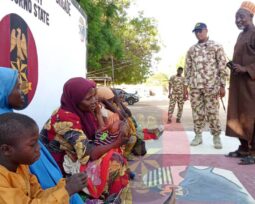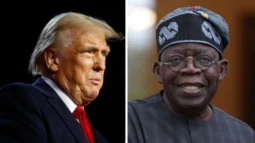Peter Obi, former Anambra State Governor and the Labour Party’s presidential candidate in the 2023 general election, faces significant political uncertainty as Nigeria inches closer to the 2027 elections. Once seen as the figurehead of a rising third force in Nigerian politics, his momentum has faltered due to internal party crises, coalition miscalculations, and diminishing public goodwill.
Obi’s political capital, which peaked shortly after the 2023 elections, has steadily declined. Many of his early supporters are now questioning his strategy, transparency, and capacity to manage party politics and national coalition-building. His recent attempts to align with rival political forces have not yielded the desired results, and divisions within the Labour Party have further complicated his path forward.
The Labour Party Crisis
When Obi joined the Labour Party in 2022, many expected him to consolidate power by building strong internal structures and embedding loyalists into key leadership positions. Instead, he relied heavily on the enthusiasm of a youth-driven base — the self-styled “Obidients” — who were galvanized by a shared desire for change and political accountability.
While this movement sparked nationwide engagement, it also developed a reputation for aggressive online rhetoric and tribal undertones, which alienated potential allies. Meanwhile, Obi kept a noticeable distance from intra-party administration. This opened up the Labour Party to factional battles, ultimately resulting in splits among the Julius Abure, Lamidi Apapa, and Basiru Usman-led factions.
The disunity has weakened the party’s capacity to serve as a unified platform for 2027, and Obi’s reluctance to take a firm stance amid the crises has left his leadership open to question.
The 2023 Election Fallout
In the run-up to the 2023 elections, Obi ran a spirited campaign, largely funded by public donations and diaspora support. Reports indicated that the campaign raised over ₦744 million from donors, while Obi personally contributed an additional ₦800 million. However, questions over transparency and financial accountability emerged after the polls.
Prominent activist Aisha Yesufu, a key member of Obi’s campaign team, was accused by some within the movement of sidelining other team members in fund disbursement. The party also faced backlash for reportedly failing to station agents at thousands of polling units across the country. These lapses, critics argued, significantly impacted the party’s performance on election day.
In response to growing calls for transparency, Obi promised a forensic audit of the campaign’s finances. As of 2025, however, no public audit has been released, deepening skepticism among his once-vibrant support base. Meanwhile, the Labour Party officially distanced itself from the campaign finances, saying it had no control over the funds raised by Obi’s independent structures.
Coalition Missteps
Amid internal challenges, Obi turned to coalition politics as a potential solution. In late 2024, he entered discussions with other opposition figures, including Atiku Abubakar, Nasir El-Rufai, and later Rotimi Amaechi, under a coalition designed to challenge the incumbent president in 2027.
However, the coalition was quickly beset by ideological differences, conflicting ambitions, and a lack of trust. Suggestions that Obi, Atiku, El-Rufai, and Amaechi would all submit to a primary election raised doubts about the coalition’s workability, especially given regional power rotation debates and Obi’s relative outsider status within traditional political blocs.
The eventual proposal that Amaechi be presented as the coalition’s consensus candidate to complete a four-year tenure for the South further alienated Obi, who reportedly stepped back from the group shortly afterward.
Three Paths Forward
With just under two years to the 2027 general elections, Peter Obi stands at a political crossroads. His options appear limited and complex:
1. Return to the Labour Party
Obi could attempt to reassert leadership within the Labour Party and mend its internal fractures. However, this would involve navigating intense factional rivalries, reconciling disillusioned supporters, and restoring public confidence in his leadership.
2. Rejoin the Coalition
Another possibility is returning to the opposition coalition and contesting a primary against more established figures like Atiku Abubakar and Rotimi Amaechi. This path, however, offers no guarantees and risks further weakening his image if he loses the primary.
3. Seek a New Political Platform
Obi could explore moving to another political party. Yet, this might cost him critical allies, such as Abia State Governor Alex Otti, and could fragment his support base even further. Another defection could also make him appear politically unstable or opportunistic.
Conclusion
Peter Obi’s journey from a surprise third-force contender in 2023 to a man with limited options in 2025 underscores the challenges of sustaining political momentum without strong internal structures and strategic alliances. While his ideals still resonate with many Nigerians, particularly the youth, the road to 2027 will require more than charisma and a populist movement.
To remain relevant, Obi must act decisively — either by reclaiming his influence within the Labour Party, redefining his role within a broader opposition coalition, or starting afresh with a compelling and inclusive political vision.
Only time will tell if Peter Obi will ever be President and can reinvent himself or if he will become a cautionary tale in Nigeria’s evolving democratic experiment.







